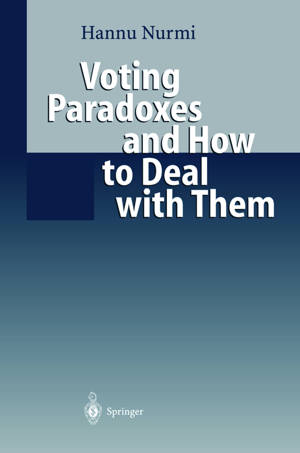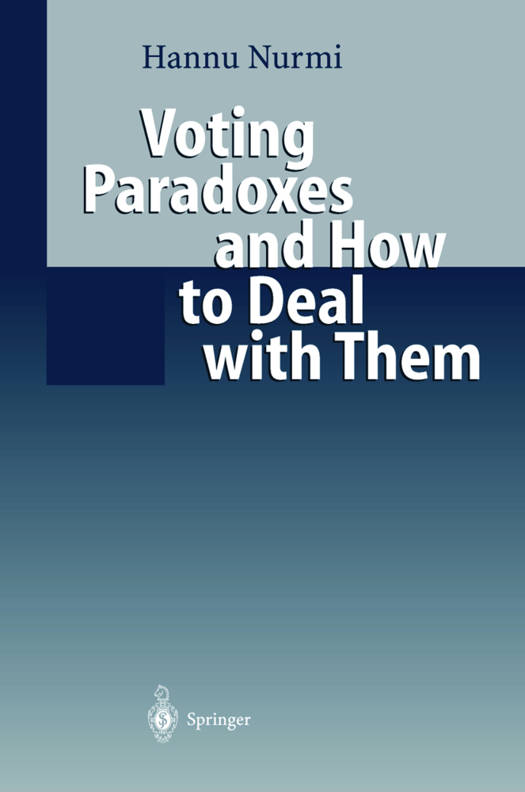
Bedankt voor het vertrouwen het afgelopen jaar! Om jou te bedanken bieden we GRATIS verzending (in België) aan op alles gedurende de hele maand januari.
- Afhalen na 1 uur in een winkel met voorraad
- Gratis thuislevering in België vanaf € 30
- Ruim aanbod met 7 miljoen producten
Bedankt voor het vertrouwen het afgelopen jaar! Om jou te bedanken bieden we GRATIS verzending (in België) aan op alles gedurende de hele maand januari.
- Afhalen na 1 uur in een winkel met voorraad
- Gratis thuislevering in België vanaf € 30
- Ruim aanbod met 7 miljoen producten
Zoeken
€ 181,95
+ 363 punten
Uitvoering
Omschrijving
Voting paradoxes are unpleasant surprises encountered in voting. Typically they suggest that something is wrong with the way in- dividual opinions are being expressed or processed in voting. The outcomes are bizarre, unfair or otherwise implausible, given the expressed opinions of voters. Voting paradoxes have an important role in the history of social choice theory. The founding fathers of the theory, Marquis de Condorcet and Jean-Charles de Borda, were keenly aware of some of them. Indeed, much of the work of these and other forerunners of the modern social choice theory dealt with ways of avoiding paradoxes related to voting. One of the early paradoxes, viz. that bearing the name of Condorcet, has subsequently gained such a prominent place in the literature that it is sometimes called the paradox of voting. One of the aims of the present work is to show that Condorcet's is but one of many paradoxes of voting. Some of these are pretty closely interrelated making it meaningful to classify them. This is the second main aim of this book. The third objective is to suggest ways of dealing with paradoxes. Since voting is and has always been an essential instrument of democratic rule, it is of some in- terest to find out how voting paradoxes are being dealt with by past and present methods of voting. Of even greater interest is to find ways of minimizing the probability of occurrence of various paradoxes. By their very nature some paradoxes are unavoidable.
Specificaties
Betrokkenen
- Auteur(s):
- Uitgeverij:
Inhoud
- Aantal bladzijden:
- 154
- Taal:
- Engels
Eigenschappen
- Productcode (EAN):
- 9783540662365
- Verschijningsdatum:
- 17/09/1999
- Uitvoering:
- Hardcover
- Formaat:
- Genaaid
- Afmetingen:
- 156 mm x 234 mm
- Gewicht:
- 412 g

Alleen bij Standaard Boekhandel
+ 363 punten op je klantenkaart van Standaard Boekhandel
Beoordelingen
We publiceren alleen reviews die voldoen aan de voorwaarden voor reviews. Bekijk onze voorwaarden voor reviews.









